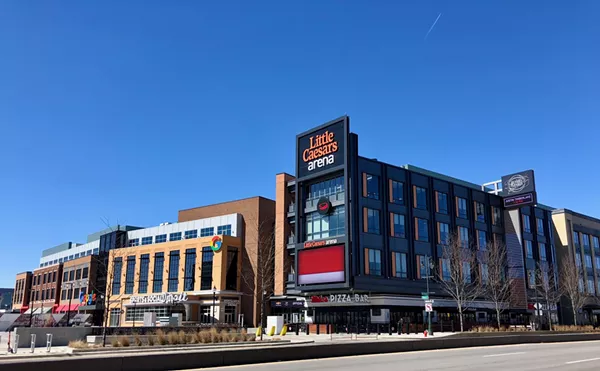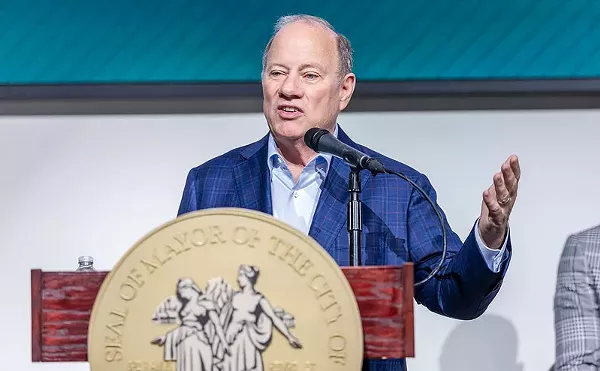
Audio By Carbonatix
[
{
"name": "GPT - Leaderboard - Inline - Content",
"component": "35519556",
"insertPoint": "5th",
"startingPoint": "3",
"requiredCountToDisplay": "3",
"maxInsertions": 100,
"adList": [
{
"adPreset": "LeaderboardInline"
}
]
}
]
Metro Times: When and why did you start Spectator Records?
Aaron Warshaw: Sometime last summer. It was something that I’ve been thinking about for a couple of years. But there’s only so much thinking you can do before you jump in. My first two releases were the Galicja 10-inch and 57 Waltz single over the summer. The plan with those two was to get my bearings and find out what the process is. At the end of the day it’s what I wanted.
MT: What’s the most rewarding/frustrating part of running a label?
Warshaw: The money part of it to me is just a way of sustaining something I really do enjoy. It’s a really fascinating process going from a DAT to a bunch of records being sold around the world.
For me, the most rewarding thing is working with people. The theoretical part of it, the process of making what I think is really good music available.
MT: Was getting distribution a difficult process?
Warshaw: I tracked down this list of 10-12 distributors, wrote up a one-sheet (a one-page, promotional tool describing the music and why a distributor would want to carry it), and faxed it to them. The response ranged from orders based upon one sheet to ‘don’t bother calling me back’.
But word of mouth has been good. 57 Waltz got a letter from a kid in Wisconsin. I’ve gotten E-mail from someone in Germany, Italy, Japan — the 10-inch and 7-inch were up on the wall in a store there with a sheet describing the records.
It’s pretty amazing that these two singles, without any promotion at all, really, have gotten to where they have.
MT: What was the most crucial thing you learned in the process?
Warshaw: The thing that I really did learn was that you’ve got to put some money and work behind the records for it to work. You’ve got to put in a little more effort to get a better return. At the very least you’ve done your job.
MT: What’s unique about Detroit and running a Detroit label?
Warshaw: First of all, I think Detroit right now is the perfect place for me to be working out of. There’s a wealth of talent and a vacuum for support for that talent. Compared to a city like Chicago, where there’s five or six strong labels. When I started the label, that issue was one of the things, whether Spectator is the thing to fill it is the question. There’s no city like Detroit
There’s as much talent, if not more here, than any city in the country. What’s lacking is support for that talent. In Chicago, it seems as though there’s more a sense of community. A few people in the generation that’s come before me, I question their motivations, some people are more concerned with preserving their name and position among the local scene than really helping it. At the end of the day, I don’t think that’s what’s important. If you get to a position where you help people, that’s more important.
MT: What’s in the future for Spectator?
Warshaw: Maybe having more of a national scope. People think that being part of a local scene is the end. I think we’ve already accomplished one thing. A friend of mine who’s now living in Chicago is doing all of the artwork for the label. That had a big part of selling them. In terms of starting this label, having someone doing all of the artwork, having a unified style was crucial. Like 4AD or Factory. I think that there already is a style or image to Spectator without me saying this is what I want, but it happened naturally. You’re better off letting stuff happen and being surprised.





